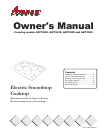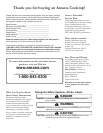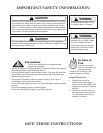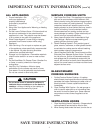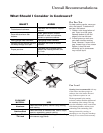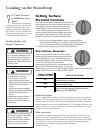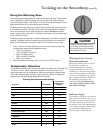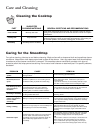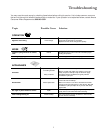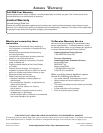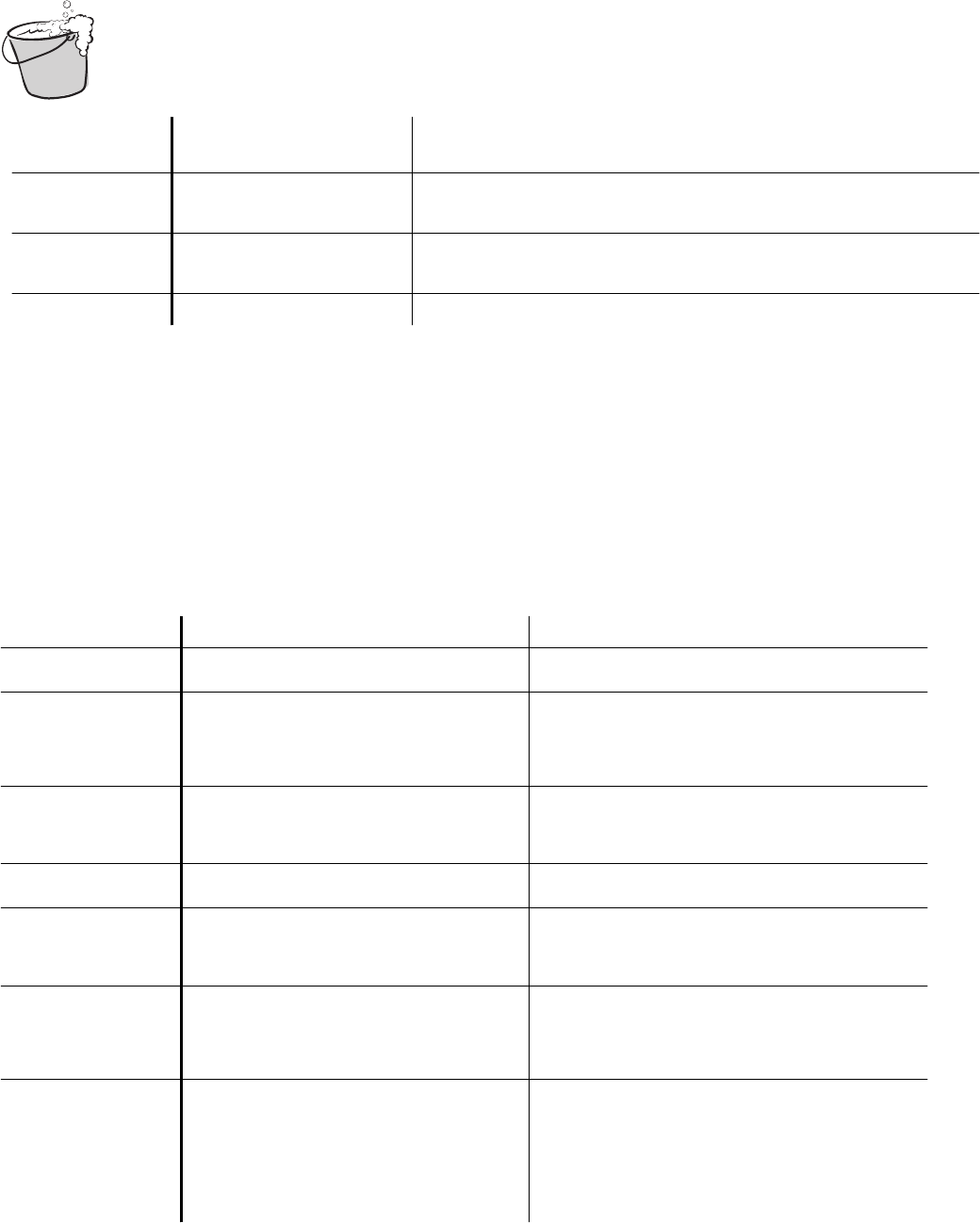
8
Care and Cleaning
For routine cleaning, allow top to cool before cleansing. Wash surface with a dampened cloth and smoothtop cleaner
conditioner. Use another clean damp paper towel to wipe off the cleaner. Use a dry paper towel, buff the smoothtop
to make sure all the cleaner conditioner is removed. The smoothtop cleaner conditioner provides a thin layer of
protective polish that helps prevent scratching. Do not use a harsh cleanser or steel wool pad. For specific problems,
see below.
Caring for the Smoothtop
PART
SUGGESTED
CLEANING MATERIALS GENERAL DIRECTIONS AND RECOMMENDATIONS
Control knobs
Mild soap and water
Pull off knobs. Wash gently but do not soak. Dry and return controls to cooktop,
making sure to match flat area on the knob to the flat area on shaft. Do not place
in dishwasher.
Cooktop trim
Soap and water
Clean cooktop trim with damp cloth and soapy water. If necessary, clean with
nonabrasive cleaners or pads. Dry thoroughly when finished to avoid rusting. Do
not use harsh powders, oven cleaners, scouring pads, or steel wool.
Smoothtop
Smoothtop cleaner conditioner
Follow cleaning directions on package and below.
Cleaning the Cooktop
PROBLEM CAUSE REMOVAL
Brown streaks and
specks
Cleaning with sponge or cloth containing soiled
detergent water.
Normal cleansing (provided above).
Blackened, burnt on
spots
Spatters or spillovers on a hot cooking area or
accidental melting of plastic like a bread bag.
Clean area with smoothtop cleaner conditioner with
clean damp paper towel, nonabrasive nylon pad, or
scouring brush.
If spot is not removed, on cool cooktop carefully scrape
area with a safety scraper held at a 30-degree angle.
Fine brown gray lines,
fine scratches or
abrasions
Course particles, like salt, become embedded in
top if trapped under pan. Using abrasive
cleaning materials. Scratches from rough
ceramic, glass, or ceramic coated cookware.
Fine scratches are not removable but can be minimized
by daily use of smoothtop cleaner conditioner.
Smearing or streaking
Using too much smoothtop cleaner conditioner
or using a soiled dish cloth.
Follow label instructions carefully. See Routine
Cleaning, above.
Metal or silver/gray
marks, may appear to
be in or under
smoothop
Sliding or scraping metal utensils across top.
Remove marks before top is used again. If marks are
not removed by normal cleaning, use a safety scraper at
a 30° angle and cooktop cleaner conditioner to carefully
scrape off the mark.
Pitting or flaking
Boilovers of sugar syrup on a hot smoothtop can
cause pitting if not removed immediately.
Turn control to LOW setting long enough to soften
spilled material. Wipe up excess spill with dry cloth.
Allow top to cool and carefully scrape area with a safety
scraper held at a 30-degree angle. Follow with routine
cleaning.
Hard water spots
Condensation from cooking can cause minerals
found in water and acids in food to drip onto
smoothtop and cause gray deposits. Spots are
often so thin they appear to be in or under
smoothtop.
Mix smoothtop cleaner conditioner with water and apply
thick paste to stained area. Scrub vigorously. If stain is
not removed, reapply cleaner and repeat process
OR
make sure the surface is cool and put a small amount of
white vinegar on the spot and let it sit a few minutes.
Use a nonabrasive nylon pad and gently rub the spot.
Wipe off any excess with a damp paper towel, then dry.



